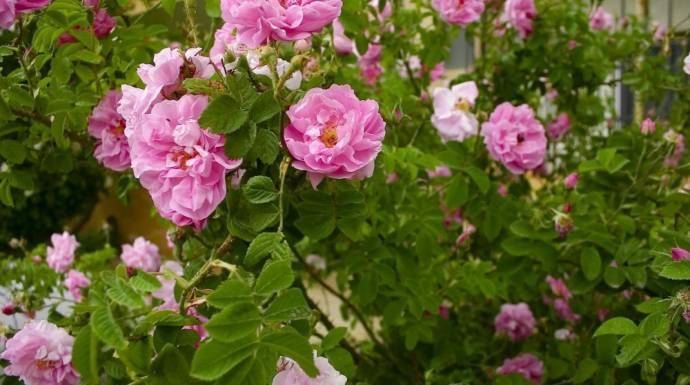Day after day, small projects prove their economic importance as one of the growth tributaries of the national economy and a real lever in supporting the process of sustainable development at the family, community and state levels.
After the remarkable interest that the cultivation of the Damascene rose received, this encouraged some to turn towards this pioneering project that characterizes Syria, specifically the village of (Al-Marah) in the Damascus countryside, until the Damascene rose became a registered landmark and a national symbol that our country is proud of and famous for.
The head of the Agricultural Cooperative Production Association for the cultivation of the Damascene rose in the town of Al-Marah, Majed Al-Bitar, explained in his statement to “Tishreen” that the area cultivated with the Damascene rose was 3,000 dunums before the crisis, but it declined during the crisis to 800 dunums currently. He said that there was a Development Committee and the Damascene Rose Association, which developed a plan to plant 300 dunums each year to compensate for the loss, adding to the cultivation of 500 dunums this year, bringing the total cultivated area to 1,300 dunums, where 35,000 new plants were planted this year, bringing production this season to 15 tons of roses.
With the end of the Damascene rose harvesting season at the beginning of June of each year, workers in this field turn to drying or manufacturing products from this distinctive rose.
Maher Al-Bitar is a government employee who, in addition to his work, was able to establish his project in this regard. He explained to “Tishreen” that he initially planted 1,200 rose seedlings on agricultural land with an area of 25 dunums.
He pointed out that it is grown in the months of January and February, and its harvest begins from May 15 until the first of June. Currently, its season has ended and work is being done to distill it.
He said: After harvesting it, we manufacture the basic material from it, which is extracting rose water by distillation and extracting the expensive essential oil from it, the price of a gram of which reaches more than 5 million liras. We also generally manufacture various food and cosmetic products from roses, such as rose jam, rose syrup, cosmetic creams, make-up, shampoo and soap as well.
Regarding the support received by Damascene rose cultivation projects, he confirmed the existence of support to encourage its cultivation and interest, especially this year, such as providing agricultural tractors and water tanks, distributing free seedlings to farmers to plant and cultivate for free, establishing wells that operate on solar energy, and providing distillation devices.
Souha Suleiman

